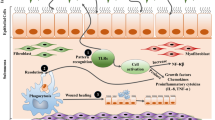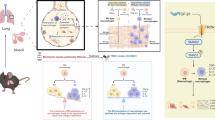Abstract
Objective and design
It is believed that correction of membrane fatty acid deficiency in cystic fibrosis (CF) downregulates the synthesis of proinflammatory mediators. We tested the hypothesis that an increase of the proportion of docosahexaenoic acid (DHA) in the membrane in vitro changes the neutrophil response to Pseudomonas aeruginosa lipopolysaccharide (LPS).
Results
Treatment with DHA increased the secretion of interleukin(IL)-1|*alpha*| by CF neutrophils, but the secretion of other cytokines, CD11b expression, and arachidonic acid (AA) release were not affected either in CF or control (CT) neutrophils. Both with and without DHA, only one out of eight CF neutrophils responded to LPS with an increase of released AA, while five out of seven CT cells released more AA (CF vs. CT P < 0.05 by Fisher test).
Conclusions
These results indicate that in neutrophils the beneficial effects of DHA on immune response are not directly related to the generation of proinflammatory precursors, and suggest that in CF the lower neutrophil AA generation in response to activation could cause insufficient production of lipid mediators involved in the resolution of lung inflammation.


Similar content being viewed by others
Abbreviations
- AA:
-
Arachidonic acid
- CF:
-
Cystic fibrosis
- CT:
-
Control
- cPLA2:
-
Cytosolic phospholipase A2
- DHA:
-
Docosahexaenoic acid
- FBS:
-
Fetal bovine serum
- IL-:
-
Interleukin
- PBS:
-
Phosphate-buffered saline
- PUFA:
-
Polyunsaturated fatty acids
- LPS:
-
Pseudomonas aeruginosa lipopolysaccharide
References
Schwartz J. Role of polyunsaturated fatty acids in lung disease. Am J Clin Nutr. 2000;71:393S–6S.
De Pablo MA, Alvarez de Cienfuegos G. Modulatory effects of dietary lipids on immune system functions. Immunol Cell Biol. 2000;78:31–9.
Khan TZ, Wagener JS, Bost T, Martinez J, Accurso FJ, Riches DW. Early pulmonary inflammation in infants with cystic fibrosis. Am J Respir Crit Care Med. 1995;151:1075–82.
Berger M. Inflammation in cystic fibrosis: a vicious cycle that does more harm than good? Clin Rev Allergy. 1991;9:119–42.
Freedman SD, Blanco PG, Zaman MM, Shea JC, Ollero M, Hopper IK, et al. Association of cystic fibrosis with abnormalities in fatty acid metabolism. N Engl J Med. 2004;350:560–9.
Strandvik B, Gronowitz E, Enlund F, Martinsson T, Wahlström J. Essential fatty acid deficiency in relation to genotype in patients with cystic fibrosis. J Pediat. 2001;139:650–5.
Strandvik B, Brönnegård M, Gilljam H, Carlstedt-Duke J. Relation between defective regulation of arachidonic acid release and symptoms in cystic fibrosis. Scand J Gastroenterol Suppl. 1988;143:1–4.
Bhura Bandali F, Suh M, Man SFP, Clandinin MT. The DF508 mutation in the cystic fibrosis transmembrane conductance regulator alters control of essential fatty acid utilization in epithelial cells. J Nutr. 2000;130:2870–5.
Keicher U, Koletzko B, Reinhardt D. Omega-3 fatty acids suppress the enhanced production of 5-lipoxygenase products from polymorph neutrophil granulocytes in cystic fibrosis. Eur J Clin Invest. 1995;25:915–9.
Panchaud A, Sauty A, Kernen Y, Decosterd LA, Buclin T, Boulat O, et al. Biological effects of a dietary omega-3 polyunsaturated fatty acids supplementation in cystic fibrosis patients: a randomized, crossover placebo-controlled trial. Clin Nutr. 2006;25:418–27.
Kuehl FA, Egan RW. Prostaglandins, arachidonic acid, and inflammation. Science. 1980;210:978–84.
Del Castillo IC, Alvarez JG, Freedman SD, Ollero M, Claros L, Song JC, et al. Docosahexaenoic acid selectively augments muscarinic stimulation of epithelial Cl-secretion. J Surg Res. 2003;110:338–43.
Boyum A. Isolation of mononuclear cells and granulocytes from human blood. Isolation of mononuclear cells by one centrifugation, and of granulocytes by combining centrifugation and sedimentation at 1 g. Scand J Clin Lab Invest Suppl. 1968;97:77–89.
DiPersio JF, Billing P, Williams R, Gasson JC. Human granulocyte-macrophage colony-stimulating factor and other cytokines prime human neutrophils for enhanced arachidonic acid release and leukotriene B4 synthesis. J Immunol. 1988;140:4315–22.
Chilton FH, Connell TR. 1-ether-linked phosphoglycerides. Major endogenous sources of arachidonate in the human neutrophil. J Biol Chem. 1988;263:5260–5.
Takenawa T, Homma Y, Nagai Y. Role of Ca2+ in phosphatidylinositol response and arachidonic acid release in formylated tripeptide- or Ca2+ ionophore A23187-stimulated guinea pig neutrophils. J Immunol. 1983;130:2849–55.
Bravo E, Cantafora A, Marinelli T, Avella M, Mayes PA, Botham KM. Differential effects of chylomicron remnants derived from corn oil or palm oil on bile acid synthesis and very low density lipoprotein secretion in cultured rat hepatocytes. Life Sci. 1996;59:331–7.
Leslie CC. Properties and regulation of cytosolic phospholipase A2. J Biol Chem. 1997;272:16709–12.
Witko-Sarsat V, Rieu P, Descamps-Latscha B, Lesavre P, Halbwachs-Mecarelli L. Neutrophils: molecules, functions and pathophysiological aspects. Lab Invest. 2000;80:617–53.
Cassatella MA. Neutrophil-derived proteins: selling cytokines by the pound. Adv Immunol. 1999;73:309–69.
Coste TC, Armand M, Lebacq J, Lebecque P, Wallemacq P, Leal T. An overview of monitoring and supplementation of omega 3 fatty acids in cystic fibrosis. Clin Biochem. 2007;40:511–20.
Vaisman N, Kaysar N, Zaruk-Adasha Y, Pelled D, Brichon G, Zwingelstein G, et al. Correlation between changes in blood fatty acid composition and visual sustained attention performance in children with inattention: effect of dietary n-3 fatty acids containing phospholipids. Am J Clin Nutr. 2008;87:1170–80.
Carlstedt-Duke J, Brönnegard M, Strandvik B. Pathological regulation of arachidonic acid release in cystic fibrosis: the putative basic defect. Proc Natl Acad Sci USA. 1986;83:9202–6.
Miele L, Cordella-Miele E, Xing M, Frizzell R, Mukherjee AB. Cystic fibrosis gene mutation (deltaF508) is associated with an intrinsic abnormality in Ca2+-induced arachidonic acid release by epithelial cells. DNA Cell Biol. 1997;16:749–59.
Kirschnek S, Gulbins E. Phospholipase A2 functions in Pseudomonas aeruginosa-induced apoptosis. Infect Immun. 2006;74:850–60.
Samuelsson B, Dahlén SE, Lindgren JA, Rouzer CA, Serhan CN. Leukotrienes and lipoxins: structures, biosynthesis, and biological effects. Science. 1987;237:1171–6.
Karp CL, Flick LM, Park KW, Softic S, Greer TM, Keledjian R, et al. Defective lipoxin-mediated anti-inflammatory activity in the cystic fibrosis airway. Nat Immunol. 2004;5:388–92.
Kimura T, Iwase M, Kondo G, Watanabe H, Ohashi M, Ito D, et al. Suppressive effect of selective cyclooxygenase-2 inhibitor on cytokine release in human neutrophils. Int Immunopharmacol. 2003;3:1519–28.
Ristimaki AS, Garfinkel J, Wessendorf T, Maciag T, Hla T. Induction of cyclooxygenase-2 by interleukin-1: evidence for post-transcriptional regulation. J Biol Chem. 1994;269:11769–75.
Machida T, Hiramatsu M, Hamaue N, Minami M, Hirafuji M. Docosahexaenoic acid enhances cyclooxygenase-2 induction by facilitating p44/42, but not p38, mitogen-activated protein kinase activation in rat vascular smooth muscle cells. J Pharmacol Sci. 2005;99:113–6.
Lee JY, Plakidas A, Lee WH, Heikkinen A, Chanmugam P, Bray G, et al. Differential modulation of toll-like receptors by fatty acids: preferential inhibition by n-3 polyunsaturated fatty acids. J Lipid Res. 2003;44:479–86.
Burns AB, Takei F, Doerschuk CM. Quantitation of ICAM-1 expression in mouse lung during pneumonia. J Immunol. 1994;153:3189–98.
De Vizia B, Raia V, Spano C, Pavlidis C, Coruzzo A. Alessio M Effect of an 8-month treatment with omega-3 fatty acids (eicosapentaenoic and docosahexaenoic) in patients with cystic fibrosis. JPEN J Parenter Enteral Nutr.. 2003;27:52–7.
Sethi S, Ziouzenkova O, Ni H, Wagner DD, Plutzky J, Mayadas TN. Oxidized omega-3 fatty acids in fish oil inhibit leukocyte–endothelial interactions through activation of PPAR alpha. Blood. 2002;100:1340–6.
Acknowledgments
Our gratitude to La Lega Italiana per la lotta alla Fibrosi Cistica which has supported this work. We are thankful for Dr. Mauro Biffoni’s excellent collaboration. We would like to thank Dr. Emanuele Bernardi for his technical help and Dr. E. Fanales Belasio for his scientific advice. We are grateful to Prof. K.M. Botham who has contributed to the improvement of the manuscript with scientific advice and revision of the English language.
Author information
Authors and Affiliations
Corresponding author
Additional information
Responsible Editor: M. J. Parnham.
Rights and permissions
About this article
Cite this article
Quattrucci, S., Napolitano, M., Valentini, S.B. et al. Neutrophil generation of inflammatory precursors is not modulated by docosahexaenoic acid. Inflamm. Res. 58, 677–685 (2009). https://doi.org/10.1007/s00011-009-0035-5
Received:
Revised:
Accepted:
Published:
Issue Date:
DOI: https://doi.org/10.1007/s00011-009-0035-5




